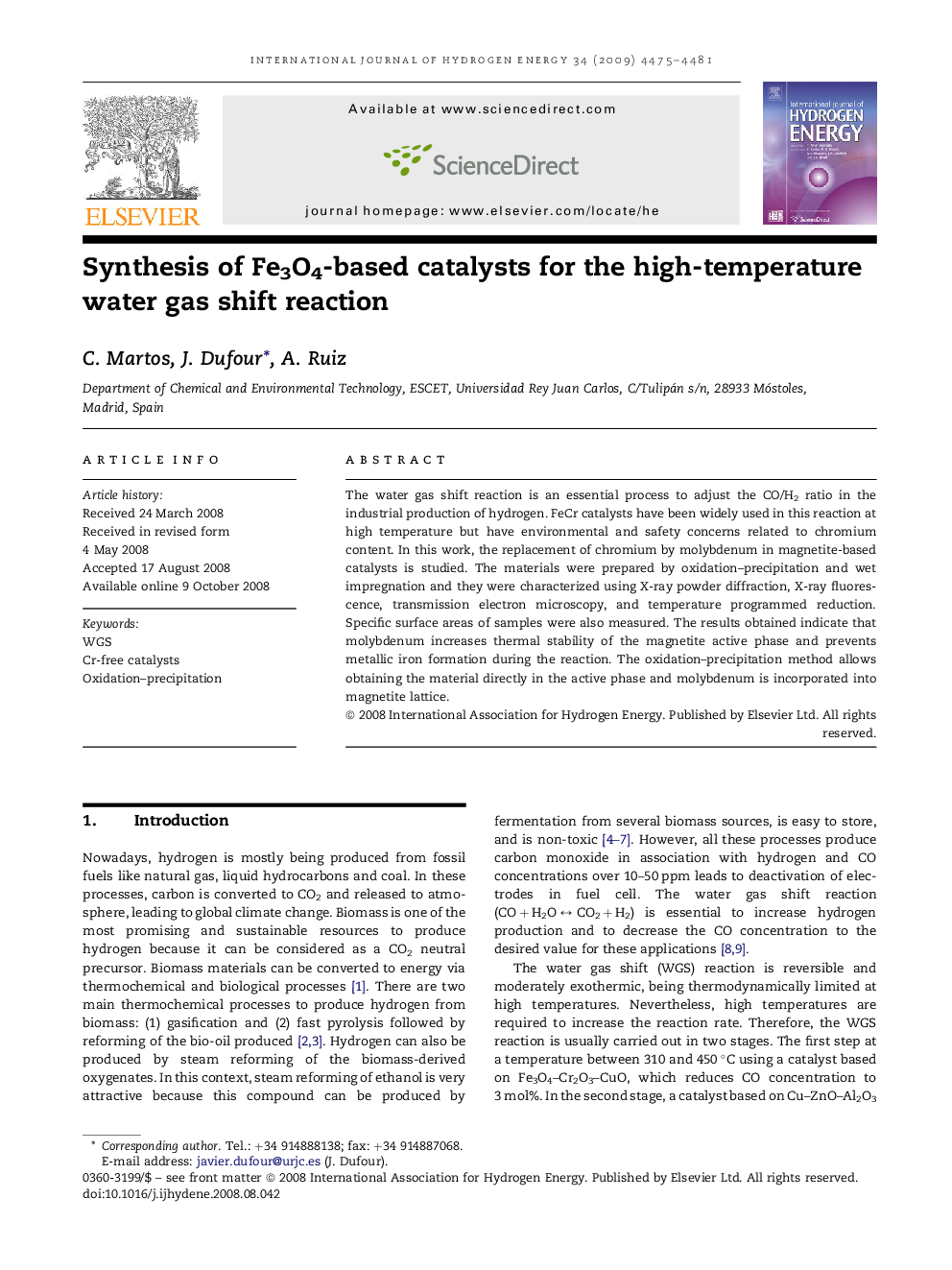| Article ID | Journal | Published Year | Pages | File Type |
|---|---|---|---|---|
| 1273858 | International Journal of Hydrogen Energy | 2009 | 7 Pages |
The water gas shift reaction is an essential process to adjust the CO/H2 ratio in the industrial production of hydrogen. FeCr catalysts have been widely used in this reaction at high temperature but have environmental and safety concerns related to chromium content. In this work, the replacement of chromium by molybdenum in magnetite-based catalysts is studied. The materials were prepared by oxidation–precipitation and wet impregnation and they were characterized using X-ray powder diffraction, X-ray fluorescence, transmission electron microscopy, and temperature programmed reduction. Specific surface areas of samples were also measured. The results obtained indicate that molybdenum increases thermal stability of the magnetite active phase and prevents metallic iron formation during the reaction. The oxidation–precipitation method allows obtaining the material directly in the active phase and molybdenum is incorporated into magnetite lattice.
